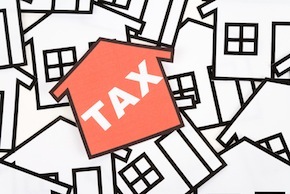All Categories
Featured
Table of Contents
If you are interested in the tax lien repossession procedure, you must contact an attorney so you understand and consider the threats of this type of financial investment. - are tax liens a safe investment
Tax obligation lien sales are one manner in which cities and areas try to redeem several of the general public bucks they've spent keeping these residential or commercial properties abandoned by exclusive proprietors. However, as we'll discuss in this article,. Once building tax obligations are thought about delinquent, regional federal governments normally concentrate on providing notification of misbehavior and trying to accumulate the overdue amounts from the owner.
This process usually takes years - tax liens and deeds investing. If an owner has strolled away and is unwilling to pay taxes or preserve the residential property, the city should spend tax bucks to preserve the residential property. These costsboarding up the building, mowing overgrown grass and weeds, reacting to fire and authorities contacts the residential property, and moreadd up

Proprietors who have actually fallen on hard times absolutely need every initiative to maintain them out of misbehavior and in their homes. Typically, if the building is uninhabited and shabby, we need to presume the owner has selected to desert their interest in the residential or commercial property and that they are "unwilling" to pay (though situations previously in the procedure may have forced their hand).
Tax Lien Investing Risks
Take, for instance, a single-family home where the owner has time out of mind left. For several years the city government has needed to action in and get rid of waste unloaded in the backyard, board up the doors and windows, and reply to phone calls about immoral activity on the residential property. All these solutions cost the neighborhood federal government taxpayer bucks.
In lots of states, those costs can be collected in the very same fashion as the unpaid taxes, but not in all. (Something that Community Progress highly advocates in support of.) At some point, the total debt comes to be better than what the building might market for. In a tax lien sale (or tax obligation certification sale) the city government commonly holds a public auction where the winning bidder accepts pay the most money for the right to implement the tax lien, beginning with a minimal quote of at the very least the tax obligations owned, plus applicable interest, charges, and expenses.

When a government offers the tax obligation lien they are usually selling to a personal customer the city government's authority to accumulate the financial debt for upfront payment of the tax obligations owed. The customer's acquisition normally consists of the capacity to make future rate of interest, as well as recover related costs and costs sustained by the purchaser, if the homeowner pays the tax obligation financial debt.
This is, essentially, privatization of a core federal government function: tax collection. Tax obligation lien sales are especially poor when it pertains to vacant, abandoned, and scrubby homes since they extend the period before a home can be moved into the hands of a new, extra accountable proprietor. Personal tax lien buyers hold the financial debt, but they do not possess the titlethe legal right to possession of the propertyand in a lot of cases, they have no passion in getting it.
Tax Ease Lien Investments 1 Llc
Thinking about budget cuts, neighborhood governments in numerous states have minimized internal building tax obligation collection and enforcement initiatives and aimed to tax obligation lien sales as a quick infusion of earnings - what is tax lien real estate investing (buying tax liens for investment). Lots of counties select or are mandated by the state to market tax liens due to the fact that it contracts out collection and typically generates really needed cash money previously in the collection process
By transferring the city government's passion in and enforcement of the tax obligation lien to a private purchaser, regional governments shed a lot of their flexibility: adaptability to acquire vacant homes that the personal market does not want, or to help the proprietor stay clear of shedding their residential property. With uninhabited residential properties, there is a much greater possibility that the personal purchaser isn't curious about the home itself.
Tax obligation lien sales can cause damage in historically disinvested locations. In a depressed housing market, less proprietors are able to retrieve the amount of the financial debt offered to a tax lien purchaser. These locations are ripe for a various kind of tax lien investorspeculative owners seeking to obtain homes on the cheap by confiscating on the real estate tax lien, bleeding what little equity is left by renting a subpar property to susceptible lessees, and then deserting the residential or commercial property when they have actually made back their financial investment.

Not all state laws give city governments the power to interfere in this cycle. In any case, the home remains uninhabited and in limbo, all the while enforcing considerable prices on its neighbors and taxpayers. It's reasonable that many city governments turn to tax lien sales because they aid money necessary civil services.
If the city government instead sells the residential property (aka the "tax obligation act"), rather than the tax debt, after that they are in control of what happens to the residential property and the enforcement process if the owner remains to not pay the home tax obligation owed. The federal government will certainly provide the owner an affordable time to pay back the tax obligation debt, after which the federal government will certainly seize its interest in the tax obligation lien and the owner's right of redemption.
From their beginning, these public auctions were venues for capitalists to make money with exploitation. In early 20th-century cities, notorious "tax sharks" like Chicago's Jacob Glos and New York's Charles Wiltsie collected fortunes by getting up ratings of tax obligation liens on homes, billing their proprietors outrageous quantities to eliminate the lien, or waiting up until the due date for negotiation passed and claiming the act.
Best States For Tax Lien Investing

Phone calls to abolish tax lien sales and overhaul tax obligation delinquency laws have actually occasionally appeared. Typically, they have actually been available in reaction to cases of inadequate, typically senior house owners who shed their homes to unethical tax obligation customers over little tax obligation financial debts. But with a few exceptions, state legislatures have actually resisted architectural reforms.
Those that have settled their mortgages (mainly seniors or persons that had acquired a family members home) must also locate the money to pay building tax obligations. This describes why 70 percent of the homes sold at tax obligation lien sales are owned outright. It is well for states to adopt a more humaneand more effectivesystem for home tax enforcement.
Latest Posts
Find Tax Lien Properties Free
Free List Of Tax Liens
Buying Houses With Delinquent Taxes